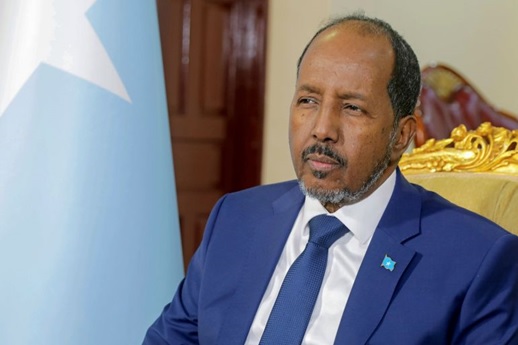
Somali prime minister warns Ethiopia over Somaliland port deal, defends national sovereignty
Your go-to source for in-depth coverage of political developments, economic trends, social affairs, and vibrant cultural stories from across the continent.

Somali prime minister warns Ethiopia over Somaliland port deal, defends national sovereignty
Somalia’s Prime Minister Hamza Abdi Barre has strongly criticized Ethiopia for its agreement with Somaliland, a self-declared breakaway region, to lease a stretch of coastline.
Speaking at the 79th United Nations General Assembly in New York on Friday, Barre defended Somalia’s territorial integrity and accused Ethiopia of undermining its sovereignty.
Somaliland, which declared independence in 1991 but remains unrecognized internationally, struck a deal with Ethiopia earlier this year to grant access to its coastline.
Somalia has condemned the agreement, viewing it as a violation of its borders.
“Somali ports have always been available for legitimate Ethiopian trade, reflecting our commitment to regional cooperation,” Barre stated during his address.
He went on to say, “Ethiopia’s aggressive maneuvers, including this controversial agreement with one of our regional administrations, erode Somali sovereignty and fuel separatist movements, threatening our national unity.”
Barre also warned that the deal could serve as propaganda for terrorist organizations like Al-Shabaab, which he claims exploit Ethiopia’s provocations to recruit vulnerable individuals.
In earlier remarks to Al Jazeera, former Somali MP and political analyst Mohamed Al-Amin Hassan expressed similar concerns, highlighting the Somali government’s deep frustration over what it perceives as a breach of sovereignty.
He noted that Somalia views Ethiopia as an aggressor that disregards international laws and agreements, particularly in its support for Somaliland’s separatist ambitions.
President Hassan Sheikh Mohamud has previously called for Ethiopia to abandon its memorandum of understanding with Somaliland as a necessary step to resolve the political tensions.
“We do not oppose Ethiopia’s access to the sea,” Mohamud said, “but it must be done through legitimate and legal channels that respect international laws.”
The tensions escalated earlier this year when Somalia expelled the Ethiopian ambassador, marking a significant strain in diplomatic relations between the two neighboring countries.
As the situation develops, Somalia continues to assert its right to defend its territorial integrity against what it sees as external interference.
I am an avid African news observer, and an active member of Daily Mail Africa.
I’m Passionate about staying informed on diverse topics across the continent,
I actively contribute to publishing on political, economic and cultural developments in Africa.